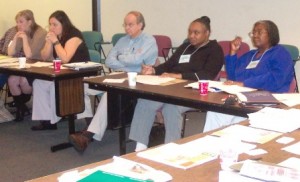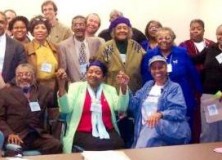The silenced are not just incidental to the curiosity of the researcher but are the masters of inquiry into the underlying causes of the events in their world. In this context research becomes a means of moving them beyond silence into a quest to proclaim the world.
Paolo Freire
 Participatory Action Research has its roots in social psychology and the work of Paolo Freire, and the work of Orlando Fals-Borda in Colombia. Its goals are to implement these action research methodologies so as to directly address identified problems in communities, and to construct a more comprehensive and human paradigm in the social sciences.
Participatory Action Research has its roots in social psychology and the work of Paolo Freire, and the work of Orlando Fals-Borda in Colombia. Its goals are to implement these action research methodologies so as to directly address identified problems in communities, and to construct a more comprehensive and human paradigm in the social sciences.
PAR studies the sets of relationships between:
- Individuals and communities and groups
- Different groups and communities with each other
- People and their physical environment
Management of group dynamics thus plays a fundamental role in any PAR process.
 At its core, participatory action research asks, how can changing our actions or practices mutually benefit a community of practitioners? By focusing on the effects of a researcher’s direct action using a collaborative method to test new ideas, Action Researchers seek to find answers to this question and implement better actions. The “research” aspects of PAR attempt to avoid traditional “extractive” research practices in which the “experts” study community members under the microscope of their research goals, observe as outsiders, and take away their data to write their papers, reports and theses. Research is designed to address specific issues identified by local people, and the results are directly applied to the problems at hand.
At its core, participatory action research asks, how can changing our actions or practices mutually benefit a community of practitioners? By focusing on the effects of a researcher’s direct action using a collaborative method to test new ideas, Action Researchers seek to find answers to this question and implement better actions. The “research” aspects of PAR attempt to avoid traditional “extractive” research practices in which the “experts” study community members under the microscope of their research goals, observe as outsiders, and take away their data to write their papers, reports and theses. Research is designed to address specific issues identified by local people, and the results are directly applied to the problems at hand.
 PAR proceeds through repeated cycles, of issue identification, action origination, analyzing these actions and their reactions, and proceed to the next iteration. This process is a continuous one. Outcomes are very difficult to predict from the outset, challenges are sizeable and achievements depend to a very large extent on researcher’s commitment, creativity and imagination.
PAR proceeds through repeated cycles, of issue identification, action origination, analyzing these actions and their reactions, and proceed to the next iteration. This process is a continuous one. Outcomes are very difficult to predict from the outset, challenges are sizeable and achievements depend to a very large extent on researcher’s commitment, creativity and imagination.

